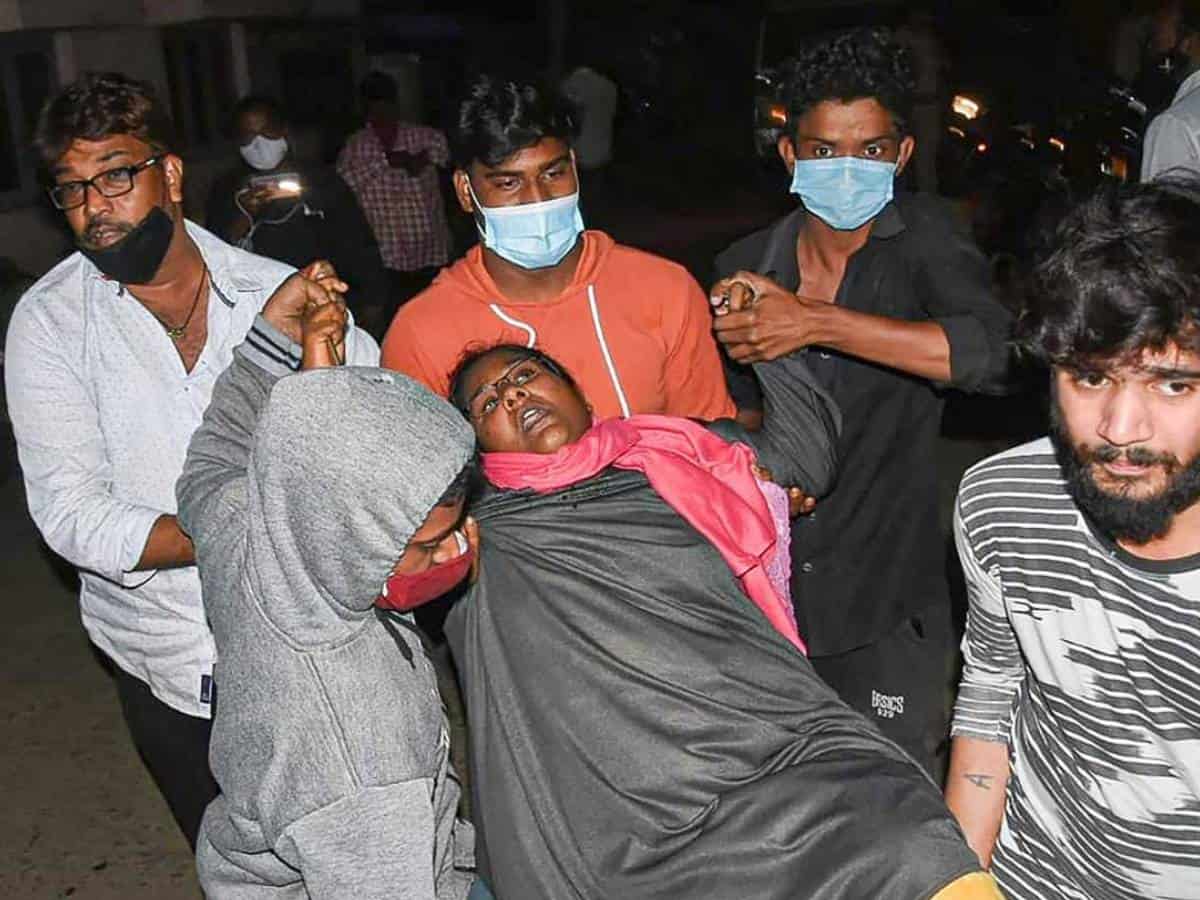Eluru: A week after the first reported case, the cause of the mystery illness, that affected over 600 and killed one so far in the West Godavari district’s Eluru, continues to elude the experts.
As of Friday evening, the mystery illness sickened as many as 616 people, of which 576 people have been discharged and one person–45-year old Sridhar, succumbed. Besides, two more persons, who were admitted with similar symptoms, died at a hospital in Vijayawada late Wednesday night, but the doctors said the causes of death were different.
The illness was first reported on December 5 with symptoms like seizures, giddiness, froth in the mouth. Symptoms like fainting spells, headache, anxiety, headache, back pain, and vomiting were in the further reported cases.
Initial speculations pointed at possible water contamination in the area but later reports by various organizations noted several abnormalities–lead and nickel in blood samples of the victims, traces of mercury in rice, pesticides and herbicide residues in vegetables, among others.
What do several reports say?
Blood samples of the patients were found to contain lead and nickel which resulted in several experts considering this as a case of lead poisoning. Levels of lead of about 83.4, 53.6, and 53.5 micrograms per decilitre were found in three different patients.
Though water contamination is being ruled out in the initial findings by Andhra Pradesh Pollution Control Board (APPCB) and Eluru Municipal Corporation, the chief minister has asked experts to test drinking water samples repeatedly as a Vijayawada-based private laboratory indicated that the drinking water supplied to areas like Gandhi Colony, Ramachandra Rao Peta, Pension Line Area and JP Colony contained high quantities of various pesticide residues, thousands of times more than the permissible limits.
14 premier agencies and institutes are currently working to determine the nature of the mysterious illness. All India Institute of Medical Sciences (AIIMS) and Indian Institute of Chemical Technology (IICT) have determined that the water samples do not contain any adverse contaminants and claimed that water is unlikely to be the source.
The National Institute of Nutrition (NIN) has requested time until Monday, December 14 to submit their analysis. They found Organochlorine in the water samples and traces of Organophosphate in the blood samples of the patients. Traces of mercury were found in rice and pesticides and excess quantities of herbicide residues were found in vegetables.
As several experts suggest heavy metal poisoning, APPCB said that they have not found any traces in water. The Institute of Preventive Medicine has not found any heavy metal traces in milk. Further analysis is being done into rice, meat, fish, soil, and air quality. Other areas like excessive chlorine and bleaching powder due to Covid related sanitation are also being probed. Final reports are expected to arrive on December 16.
One of the major challenges being faced by experts to determine the cause is the absence of a common link between different patients. Patients of different localities cutting across sex, age, and social groups have been affected.
Meanwhile, the state government has commissioned a 21 member panel to further probe the situation. The multidisciplinary committee is to be headed by chief secretary Neelam Sawhney.

